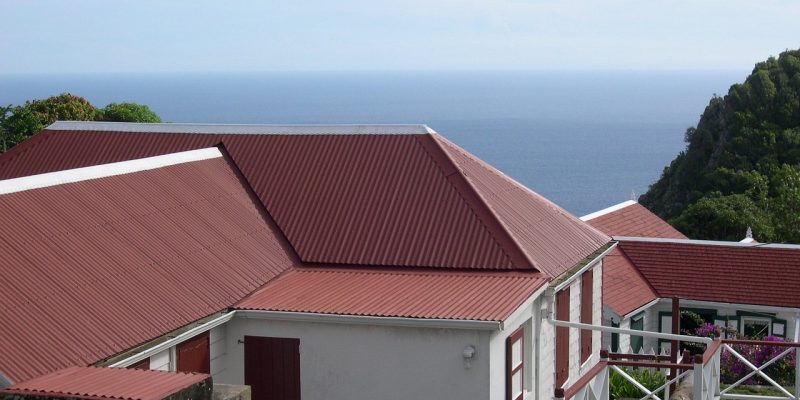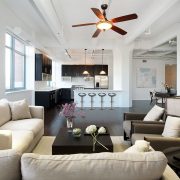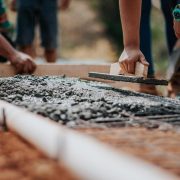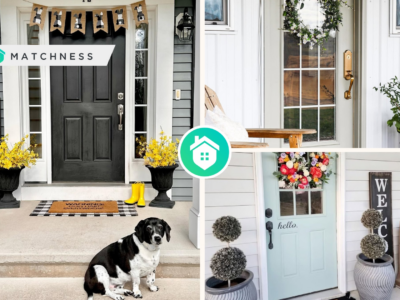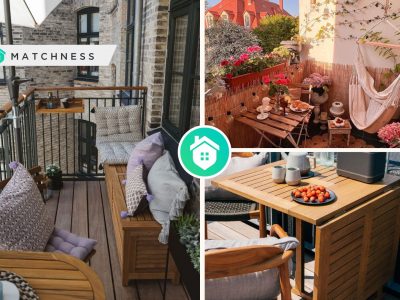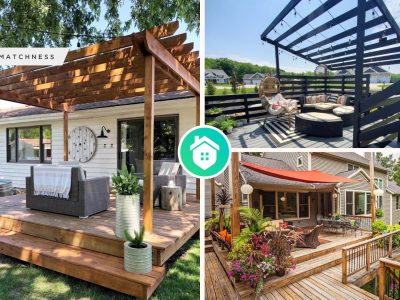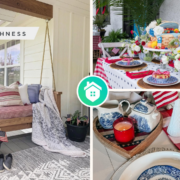Looking to update your home or building’s roof while balancing cost, durability, and aesthetic appeal?
Choosing the best roofing material involves the consideration of several factors, including durability, energy efficiency, maintenance requirements, and budget. Metal and corrugated roofing are two great options to consider, each with unique benefits that may make them the perfect fit for your needs.
The following information provides a brief overview to help you better evaluate the differences between these two roof types.
What is Metal Roofing?
Metal roofing, made from steel, aluminum, or copper, is known for its durability, longevity, and resistance to harsh weather conditions. It’s also extremely efficient because of its ability to reflect heat and reduce energy costs.
While metal roofing has been used for centuries, it’s also gained popularity for its aesthetic appeal. It might surprise you that these rooves are now found in residential housing, not just commercial or agricultural structures. In fact, the metal roofing industry has seen significant growth in the past decade, with more homeowners and businesses preferring it more often.
Pros of Metal Roofing
- Cost-Effective
While the initial cost of metal roofing can be higher than other types, it’s cost-effective in the long run due to its durability and longevity. In addition, most homeowners won’t have to repair or replace it as often as asphalt and wooden shingles if installed by a professional metal roofing company.
- Durability
The most significant benefit of metal roofing is its durability. It can withstand high winds, heavy rain, hail, and even fire. Plus, these typically feature a lifespan of 40 years or more, much longer than other types of roofing materials.
- Energy Efficiency
Metal roofing is also energy-efficient because it reflects heat and reduces energy costs. This is especially important in hot climates where air conditioning costs can soar during hot summer months.
- Low Maintenance
Metal roofing is low-maintenance because it’s built to last in the toughest of weather. So while you may need to conduct minimal maintenance, you’ll likely never have to replace it.
Cons of Metal Roofing
- Noise
One of the drawbacks of metal roofing is the noise it can create during rain or hailstorms. While some homeowners don’t mind the noise, others find it to be annoying.
- Installation Cost
Metal roof installations can be more expensive than other roofing materials due to the required specialized skills and tools.
- Dents
Metal roofing is a popular roofing material due to its durability, longevity, and low maintenance requirements. However, it’s not completely immune to damage. One of the common issues that metal roofing can suffer from is dents.
What is Corrugated Roofing?
There is also growing popularity of metal roofing in corrugated form, which offers a more affordable option for those who want the benefits of a metal roof but on a lower budget. It’s frequently used for agricultural and industrial buildings and comes in steel, aluminum, plastic, or polycarbonate.
Pros of Corrugated Roofing
- Affordability
Corrugated roofing is one of the most affordable types of roofing materials available. It’s great as a roofing option for:
- Sheds
- Garages
- Workshops
- Decks
- Homes
- Lightweight
Corrugated roofing is lightweight, making it easier to install than other roofing materials. It’s also easier to transport, which can help reduce shipping costs.
- Versatility
Corrugated roofing is available in different materials, colors, and sizes, so it’s extremely versatile for different structures.
Cons of Corrugated Roofing
- Durability
Corrugated roofing is less durable than metal roofing and is more prone to damage from high winds, hail, and other severe weather conditions.
- Lacks Energy Efficiency
Unfortunately, it’s not as energy-efficient as metal roofing and could increase energy costs due to its inability to reflect heat.
- Maintenance
Corrugated roofing requires more maintenance than metal roofing since it’s more prone to rust, corrosion, and other types of damage.
Metal Roofing vs. Corrugated Roofing: Which is Best?
Now that we have looked at the pros and cons of each type of roofing, the question remains – which one is best for your needs? The answer truly depends on various factors such as climate, your budget, your home, and the level of protection you want it to offer.
For those living in extreme weather conditions such as high winds, heavy rain, and hail, metal roofing is the better choice due to its durability and resistance to harsh weather. Additionally, metal roofing is more energy-efficient than corrugated roofing and can help reduce energy costs in hot climates. On the other hand, corrugated roofing is a more affordable and lightweight option, making it ideal for agricultural and industrial buildings, sheds, and garages.
Another factor to consider is the aesthetic appeal of the roofing material. Metal roofing is available in different styles and colors, which can enhance the look of a home or building. Corrugated materials, however, have a more rustic and industrial look, which may need to be more suitable for your roof plans.
Final Thoughts
Both metal and corrugated roofing have their advantages and disadvantages. While metal roofing is more durable, energy-efficient, and requires less maintenance, it is also more expensive to install. Corrugated roofing, on the other hand, is more affordable, versatile, and lightweight but is less durable and requires more maintenance.
Ultimately, the choice between these two products depends on what you want it to accomplish. Before making a decision, consult with a roofing professional who can help determine the best option for your needs.


